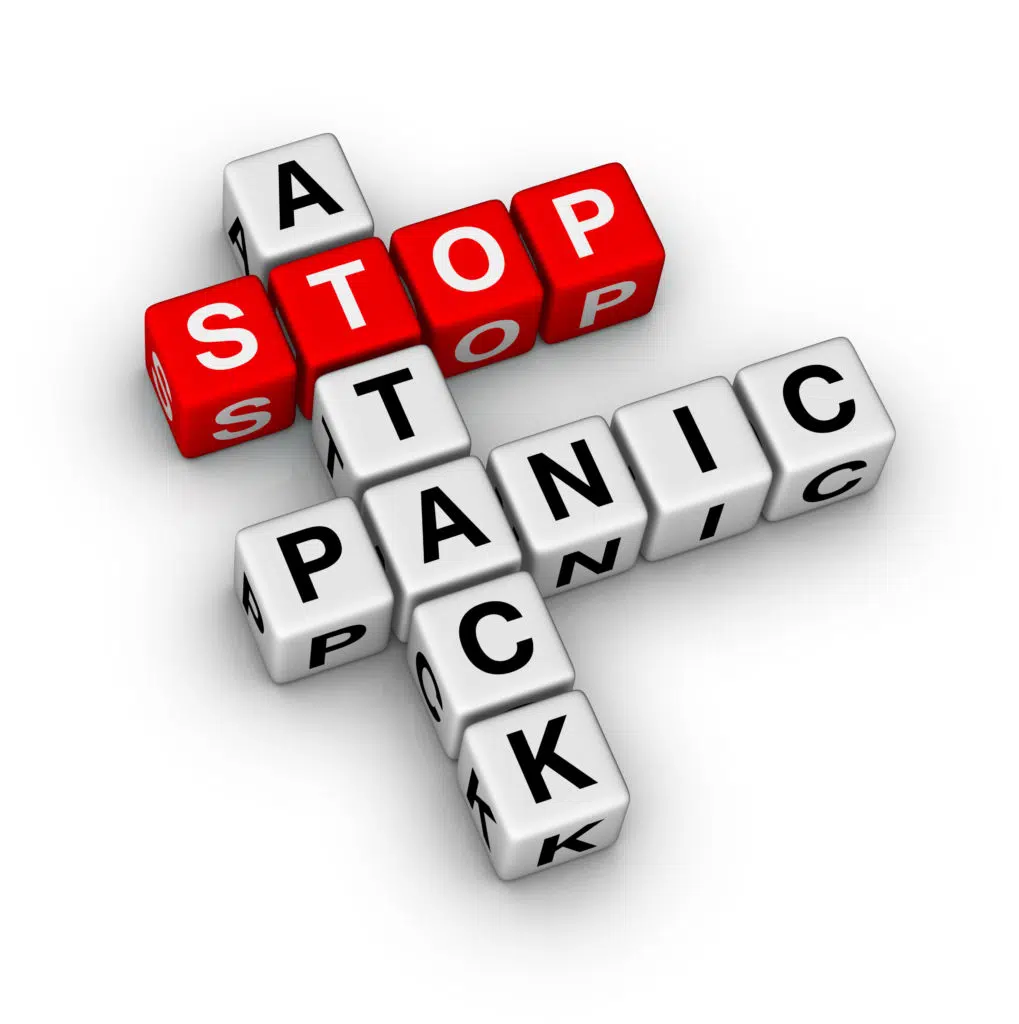- 4 Tips for Better Sleep Hygiene - March 4, 2024
- Understanding Different Attachment Styles: A Guide to Better Relationships - February 20, 2024
- Beating the January Blues: A Therapist’s Perspective - January 15, 2024
Last week, our therapist at the Grief Recovery Center in Houston, TX talked about panic attacks, with what it is, who it affects, what causes the attacks, as well as the symptoms to look for to know if you are experiencing a panic attack. This week, we are digging more in-depth with an understanding of what to do while you have a panic attack, or if you are witnessing a family member or a friend having a panic attack.
If you have never had a panic attack, it is common to mistake it for something else. The physical and emotional symptoms associated with panic attacks can be terrifying due to the uncontrollable nature and intensity of the symptoms. For those who have had previously experienced panic attacks, they know that it is an anxiety-ridden reaction that cannot be predicted as to when one will hit, nor can they be prevented. They key, as our expert counselors Grief Recovery Center will recommend, is to learn new strategies to help you understand, prepare, and learn to cope with a panic attack.

Grief Recovery Tips for Handling Your Panic Attack
Panic attacks are not preventable, but there are things that you can do to minimize the physical and emotional distress you will experience in the midst of an attack. So, how can you calm yourself from having a negative panic attack that can leave you reeling for days? Here are our most recommended tips from our therapists at the Grief Recovery Center.
Meditating
One of the most effective and quickest remedies to a panic attack is to learn how you can think yourself through the attack. However, this does take experience and practice over time to use as your first line of defense in coping with a panic attack.
Our Grief Recovery Anxiety management techniques like meditation can help curb a panic attack if you can learn the following:
- Breathing techniques – learning how to control your breath, and how to slow it down can minimize your chances of making your panic attack worse. When a panic attack sets in, our Grief Recovery Center recommendation is to take deep and slow breaths to soothe your emotional and physical symptoms.
- Pause your thoughts – another strategy is to be aware of your thoughts once a panic attack sets in. This may sound easier than it seems, but the key is to be mindful of your thoughts, only you know yourself the best. Once you feel your thoughts getting out of hand, tell yourself to stop, meditate on your thoughts, and then make a decision as to how you can feel calm again.
- Meditate on positive thoughts only – Being mindful of your overall thoughts throughout the day can help you their stressful situations that can cause panic attacks. Even though you won’t be able to prevent the attack itself, our experts at the Grief Recovery Center recommend that you manage the negative thoughts to successfully reduce your anxieties.
- Physical relaxation – physical symptoms of panic attacks can cause an individual to further their anxieties because of the shortness of breath and the increased heart rate. Thus, it is essential to learn how to consciously relax your body to cope with a panic attack.
Support Networks or Groups
Panic attacks can be embarrassing, but you are not alone. Our Grief Recovery Center sees a variety of individuals that may have similar experiences. They can help you connect with others that have learned how to overcome their anxieties or individuals that are learning just like you.
Shared experiences will help you get the help you need to through learning from other’s experiences, as well as gaining a network of individuals who comprehend precisely the same thing as you. It is a complement to your existing treatment with a therapist to help you further understand what you’re going through.
Read: How to Help a Friend or Family Member through a Panic Attack
Self-Care
Clients that are being treated for panic attacks or panic disorders at the Grief Recovery Center have found that they are more sensitive to fear and stress. As such, it is crucial to mitigate the different pressures and anxieties in life by focusing on self-care or self-help.
A well-balanced diet, adequate sleep, and regular exercises are vital in managing everyday stresses that can cause panic attacks. Other self-care routines can include doing things that make you feel relaxed, such as spending quality time with family and friends, engaging in a hobby, and minimizing the uses of drugs and alcohol to alleviate your stresses or anxieties.
Self-care can mean that you may experience significant lifestyle changes. To avoid feeling anxious about changes, be sure to communicate openly with your support network or therapist so that you can make the best of your coping techniques.
Therapy
Counseling is essential for many of our clients at the Grief Recovery Center in their journey of coping with panic attacks and anxiety disorders. A primary form of treatment, called cognitive-behavioral therapy is widely used to help our clients work through their feelings, behaviors, mindsets, and what may cause the panic attacks in the first place.
Some counselors may prescribe medications that are aimed at dealing with anxieties, or antidepressants alongside counseling sessions to minimize the bodies’ reaction to panic and fear. However, it has long been recognized that counseling will be a more effective approach to managing anxiety.
Therapy sessions will focus on teaching the individual the many different coping skills they can use in the onslaught of a panic attack. CBT is a short-term treatment that is aimed at providing you with the awareness of triggers that may cause panic, and the strategies to manage your own anxieties long-term.

How to Get Started in Overcoming Panic Attacks?
The above suggestions are beneficial for individuals that are in the beginning stages of realizing their anxieties. If the above strategies were practiced early on, an individual is very likely to overcome their panic attacks. However, if concerns and panic attacks have been untreated, or undealt with over a long time, it is essential to seek professional assistance from our trained experts at the Grief Recovery Center in Houston. If you or someone you know needs help in this area, you can contact us at the Grief Recovery Center for more info today.


No comments yet.